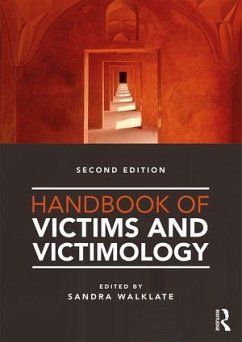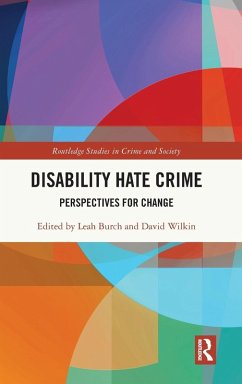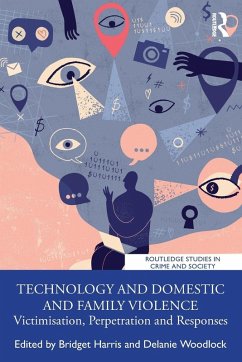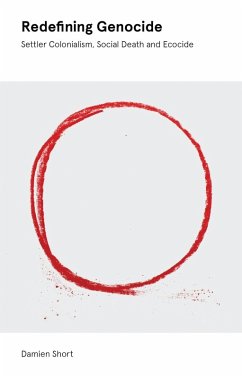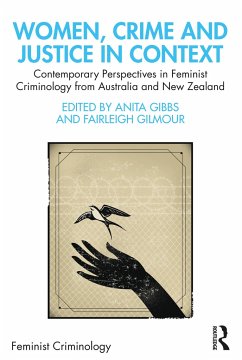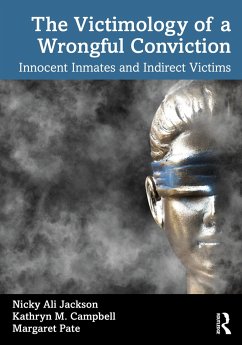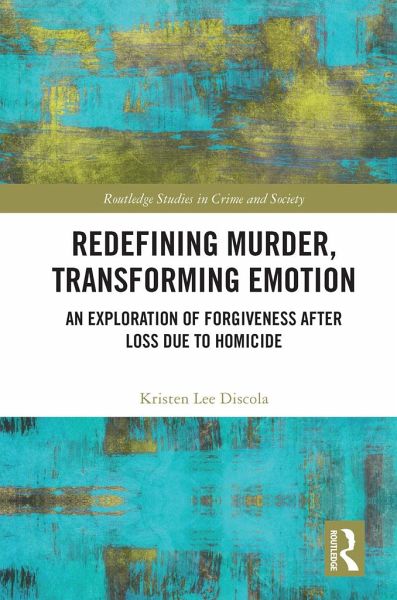
Redefining Murder, Transforming Emotion
An Exploration of Forgiveness after Loss Due to Homicide
Versandkostenfrei!
Versandfertig in 6-10 Tagen
45,99 €
inkl. MwSt.
Weitere Ausgaben:

PAYBACK Punkte
23 °P sammeln!
Offering insights based on years of original research, Redefining Murder, Transforming Emotion: An Exploration of Forgiveness after Loss Due to Homicide investigates the ideas and experiences of individuals who have lost loved ones to homicide (co-victims) in order to advance our understanding of the emotional transformation of forgiveness. It stands at the crux of two vibrant, growing fields: criminal victimology and the sociology of emotion. Analysis of 36 intensive interviews with co-victims and three years of participant observation of self-help groups and other victim-centered events offe...
Offering insights based on years of original research, Redefining Murder, Transforming Emotion: An Exploration of Forgiveness after Loss Due to Homicide investigates the ideas and experiences of individuals who have lost loved ones to homicide (co-victims) in order to advance our understanding of the emotional transformation of forgiveness. It stands at the crux of two vibrant, growing fields: criminal victimology and the sociology of emotion. Analysis of 36 intensive interviews with co-victims and three years of participant observation of self-help groups and other victim-centered events offers a multidimensional understanding of forgiveness.
Specifically, this book answers the questions of "What?," "When?," "How?," and "Why?" forgiveness occurs by exploring co-victims' ideas about forgiveness, the differential experiences of various groups of people, the processes through which forgiveness occurs in a variety of extreme circumstances of homicide, and co-victims' motivations toward forgiveness. The book concludes with commentary on overarching conclusions based on this work; theoretical and practical implications; suggestions for directions for future inquiry; and an in-depth account of the methodological strategies employed to gather such rich and nuanced data.
This book will appeal to academics and students alike, within relevant fields, including sociology, criminology, restorative justice, victim services, psychology, and social welfare, as well as individuals seeking a better understanding of their own experiences, including co-victims or others whose lives have been altered by extreme forms of violence and upheaval. Its detailed postscript will also serve well those interested in qualitative methodology in social science research.
Specifically, this book answers the questions of "What?," "When?," "How?," and "Why?" forgiveness occurs by exploring co-victims' ideas about forgiveness, the differential experiences of various groups of people, the processes through which forgiveness occurs in a variety of extreme circumstances of homicide, and co-victims' motivations toward forgiveness. The book concludes with commentary on overarching conclusions based on this work; theoretical and practical implications; suggestions for directions for future inquiry; and an in-depth account of the methodological strategies employed to gather such rich and nuanced data.
This book will appeal to academics and students alike, within relevant fields, including sociology, criminology, restorative justice, victim services, psychology, and social welfare, as well as individuals seeking a better understanding of their own experiences, including co-victims or others whose lives have been altered by extreme forms of violence and upheaval. Its detailed postscript will also serve well those interested in qualitative methodology in social science research.








